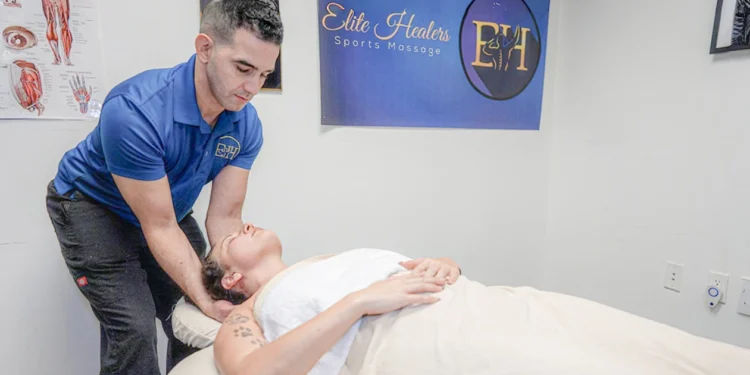Harrison Street’s mission is to be at the forefront of healthy living communities for seniors. This reflects our dedication to alternative real estate investments, including senior housing. Health and wellness, part of the “S” of ESG, has always been a key component of our strategy.
In 2019, he began studying how buildings affect the well-being of their residents. The concept was to leverage design and manipulation to improve mental and physical health. The team began searching for performance-based standards for healthy buildings, leading to the discovery of a certification called Fitwel™. We partnered with the Center for Active Design (CfAD), a licensed operator of Fitwel™, to create a Senior Housing Scorecard.
Since then, Harrison Street has committed to seeking certification for all affected hotels, using scorecards to track the effectiveness of its health and wellness efforts. Not only does this ensure a healthy environment for residents, but it also improves reputations, as a study of MIT office buildings showed. The scorecard isn’t just for Harrison Street. It is now a commercial product that can be used throughout the senior housing industry.

Why this approach?
Harrison Street’s ESG strategies and responses to climate change are diverse. The company seeks to reduce its climate impact with a target of 70 trillion emissions reductions by 2025. Mitigate impacts by conducting physical and transitional risk assessments and implementing mitigation plans. But climate change doesn’t just affect physical buildings.
It also affects physical presence. A climate-resilient net-zero building is just a shell if it doesn’t take into account the needs of its residents. Additionally, the Covid-19 pandemic has increased the demand for senior housing, making it more important than ever to support the health and well-being of residents. Since 2005, Harrison Street has invested approximately $13 billion in more than 312 senior living neighborhoods.
The company chose his Fitwel approach for three reasons:
It can be marketed to residents and employees to give individual properties a strong differentiator.
To ensure properties within the Harrison Street portfolio meet set standards for health and wellness.
Find out how buildings designed and operated to Fitwel standards improve health, productivity, and overall well-being, and potentially improve financial performance. Lastly, the company is partnering with MIT.
MIT has previously generated 4.4% to 7% higher rents per square foot for health-certified office buildings in 10 major U.S. cities than the nearest uncertified comparable property.
Details of approach
Most of the products developed for the real estate sector, including Healthy Building Certification, were originally designed for traditional assets such as offices. For example, a typical scorecard awards point for encouraging the use of stairs instead of elevators. In senior living settings where many people have mobility problems or are in wheelchairs, climbing stairs is often not an option. The company has partnered to create a scorecard for the senior housing industry. I had to find out. Fortunately, he has found a strong partner in his CfAD who is committed to providing healthy buildings for all. Fitwel was founded by the Centers for Disease Control and Prevention (CDC) and the Department of General Services. To create the new scorecard, CfAD used an algorithm based on his 5,600 peer-reviewed studies. This helped develop a weighted strategy to achieve a healthy building. For a scorecard dedicated to senior housing, this approach was not enough and we needed to work with Harrison Street and our operators to better understand the industry. After attending workshops and conducting months of pilot testing, we developed a scorecard that did not break the original scorecard.
Result
For this initiative, we first conducted a gap analysis using the original scorecards at our two facilities in New York. Based on these pilot projects, ongoing research, and operator input, the product will be updated throughout 2020 and will be commercially available in 2021. In February 2022, the community of Harrison Street, Oregon, became the first community to be certified under the new criteria. To date, another 110 communities have his Fitwel project.
The Senior Housing Scorecard is now being applied to Harrison Street’s broader portfolio, to certify 80% of eligible properties within her first year of ownership.










